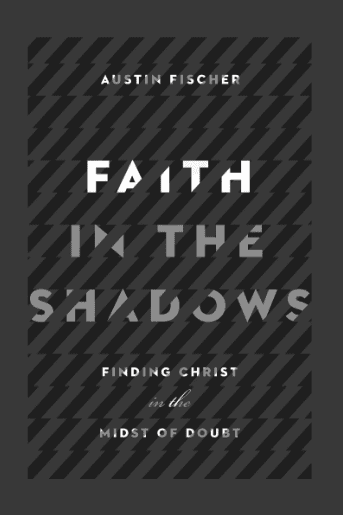 Faith in the Shadows, by Austin Fischer
Faith in the Shadows, by Austin Fischer
A few years ago, I almost became a pastor who didn’t believe in God. In fact, there were probably a few moments when I didn’t believe in God. It’s tough to know.
My apostasy or near-apostasy wasn’t precipitated by a singular event. Few apostasies are. When our faith dies, it’s less like a guillotine drop and more like death by paper cuts. Mine was the culmination of years of doubt piling up on my shoulders until my knees buckled. The usual suspects were involved—suffering and evil mainly (they are, after all, wonderful reasons not to be a Christian), but also moral relativity, other religions, a general impression that science was gradually explaining God out of every little nook and cranny of the universe, and a God who can’t be bothered to, you know, say or do something a bit more obvious to remind us we’re not making it all up. In short, I was tired of being God’s press secretary, defending his inscrutable ways to myself and others because he couldn’t be bothered to speak up or show up.
A common misconception about a crisis of faith is that it is something you go looking for. You went asking too many questions, exploring too many taboos, exposing yourself to too many experiences. And while that does happen, it is mostly all untrue. We don’t want to leave our faith; our faith wants to leave us. And eventually we tire of talking our faith into staying, begging it to stick around, and we realize we must let it go, in the hopes it will return to us one day.
When I found my faith again, I found it the same way I lost it—a little at a time.
I kept showing up. Seeing as how I was a pastor, I had a bit more incentive than the average apostate, but the effect was efficacious even if the motives were mixed. I had always told my church that we should run to the church instead of away from the church when we doubt. And while I was an apostate, I wasn’t a complete hypocrite, so I kept showing up with the unexpected realization that the church could, at least for a season, believe for me. I felt the belief of others, and I believed in the belief of others, and their belief slowly resuscitated my belief.
I told God I didn’t know if I believed in God. Job was my teacher here. To be fair, Job didn’t doubt God’s existence so much as he doubted God’s morality. But either way, Job said some nasty things to God, even as his theological boy-scout companions told him to praise God, don’t doubt, and get over it. Job did eventually get over it and praise God, but only after he doubted. The theological twaddle of the Joban boy-scouts got them a close encounter with the business end of God’s wrath. Job is put in his place but then receives blessing and revelation from the living God. Even when I had nothing nice to say and was unsure if there was anyone listening, I prayed.
I loved. Saint Paul tells us that love is greater than faith. Indeed, faith is just a means to love. So instead trying to conjure up faith, I used my feet and my hands and my words (my body) to love people. I discovered that my doubts were relentless critics of my faith, but could offer no response to my love. Doubts quiet before love. I ceased trying to believe or rationalize myself back into faith. I loved and love created faith.
I did many more things, and wrote a book about it. It’s called Faith in the Shadows: Finding Christ in the Midst of Doubt. So if your faith has left, or seems ready to leave, or even if you’ve never had much faith to speak of, I’d like to think God might use it to help you find faith (or faith find you), a little at a time.












